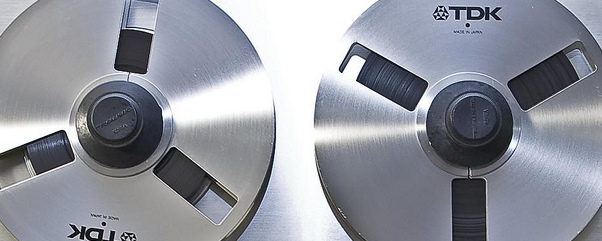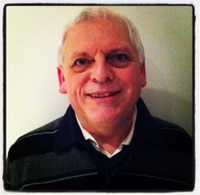
G. F. PHILLIPS reports on the spoken-word site listenupnorth
Six months and counting, with almost 1,000 visitors a day, is enough time and support to warrant a review of a new spoken word site: listenupnorth.com.
The owner of the site, Rachel Cochrane, is a published author who has sent work out in the past to well-established publishers, only to come to a commercial full stop – as she told me, ‘I was continually frustrated by the commissioning process.’ Hers was a typical reaction, and with the advent of digital media, she began to look into the pros and cons of setting up a spoken-word site as an alternative to the printed text. She went through the necessary financial and legal obligations of insurance (about £1,300 per annum) and a data protection fee; other key areas were publicity and finding a suitable recording studio. At last, satisfied with the technical back-up of the right web designer, she conducted a mock-run of the site last October, before going ahead for real two months later from her home in Stocksfield, Northumberland.
The initial drive to acquire a site was self-publication, albeit through sound reproduction of some of her written texts, but Cochrane was also to come across other writers who had faced similar difficulties with conventional publishers. To begin with, the site featured writers mainly from the North East because that was her home base. Then things developed through groups of writers who had grant-aided projects, such as my own involvement with a book of poetry, short stories and photographs on North Tyneside landmarks. The site’s geographical area soon expanded. As Cochrane says, ‘Although it’s called listenupnorth, it’s not restricted to writers in the north. I have taken on writers from other parts of the country. To save writers travelling to record their work here, I even accept podcasts as pre-recorded material.’
Preparation is vital. First, it’s selecting the writers and their text. Whether it’s poetry, a short story, or the writer or others acting out a piece of drama, it has to be read well and sound clear; as this is audio, works need a strong narrative, hardly any digression and little dialogue. After that, it’s necessary to have a contract allowing the written work to be recorded. Then a profile of the writer, complete with photo, goes on the site, and recording time is booked. This all takes time and money.
Finding writers for the site is, as Cochrane notes, ‘all about the quality of content, which must be challenging as well as down-to-earth.’ Any editorial decision is always going to be highly subjective, but she gets good feedback from other writers, and her site has not been of interest only to the budding or early career writer. Its eclecticism means an author’s age, style or track record is no barrier to being accepted. Having people read their own work is a financial consideration, but it’s also a learning curve for the writers as performers, and in hearing their own voices played back on that first take, it gives them the opportunity to appreciate what the listener hears at the other end.
The inclusion of an interview on the site is a godsend for both writer and listener – this was certainly true for me. I have been involved in a sideline of writing lyrics for several composers over the years. Also, as an adult education tutor in creative writing and literature, and giving special courses on writing lyrics and poems set to music, the interview meant free advertising. It is a great opportunity for proven writers to discuss their interests and ambitions, and promote their recent publications. More than anything, it’s an excellent way to raise the author’s profile. For the listener, it’s a clue to understanding the person behind the writing, and because you listen close up, it’s an intimate portrayal.
Cochrane has also moved out into the community to record writers and their work. This has often been the result of community leaders and administrators of community projects responding to the listenupnorth monthly blog, a diary of who, where, when and what had been covered on the site. For example, Cochrane recorded a women’s writing group from Easington, County Durham, and duologues from Live Theatre’s Workshops. Writers have also come via the New Writing North agency’s newsletter and subscribers to Facebook and Twitter.
Recently, there has been an increase in collaborations. One has been the site’s pairing with Writers’ Block, new publishers from Middlesbrough. A competition is being run for writers of poetry and prose to write on the subject of Teesside’s famous Transporter Bridge. The prize is publication in the Writers’ Block anthology and a contract to record the winners and their work through listenupnorth. Entry is free, and as I write this piece, the selection process has begun. Cochrane welcomes suggestions for further collaborations, which can benefit writers individually, as well as those attending writers’ circles and groups.
Such joint ventures bring with them recognition for the authors and their work, whether it’s through the printed page or the listen-and-be-heard personal touch that Cochrane has always insisted on as crucial to her spoken-word site. She wants the way in which the site is listened to kept flexible – through a PC, downloads to an MP3 player, or in a car.
The site started out at the owner’s expense. Now she admits, ‘it has become bigger than me.’ The high volume of manuscripts means a £20 reading fee has had to be introduced. On the recording side, the sound production has been centralised with a move to a studio on Tyneside, which is more expensive but also provides greater technical support.
Plans are afoot to attract advertising and local sponsorship; two local advertisers already support the site. Cochrane intends to keep up the community work and collaborations, and perhaps publish CD versions using the site’s archives – anything to spread the word, so to speak.
Listenupnorth has been an experiment so far which has given writers the opportunity to have their work encouraged, and, for some, the all-important interview has enabled the writer behind the work to gain a wide and listening audience, not just in points north.
***
This article first appeared in the Winter issue of The Author, the journal of
The Society of Authors.
*
 Gordon Phillips is an adult education tutor in creative writing and literature on Tyneside. He has written articles, book and theatre reviews for various magazines including Education Review and The Good Book Guide. Some of his fiction, song cycles and poetry have been published by Oxford University Press and MacMillan.
Gordon Phillips is an adult education tutor in creative writing and literature on Tyneside. He has written articles, book and theatre reviews for various magazines including Education Review and The Good Book Guide. Some of his fiction, song cycles and poetry have been published by Oxford University Press and MacMillan.

